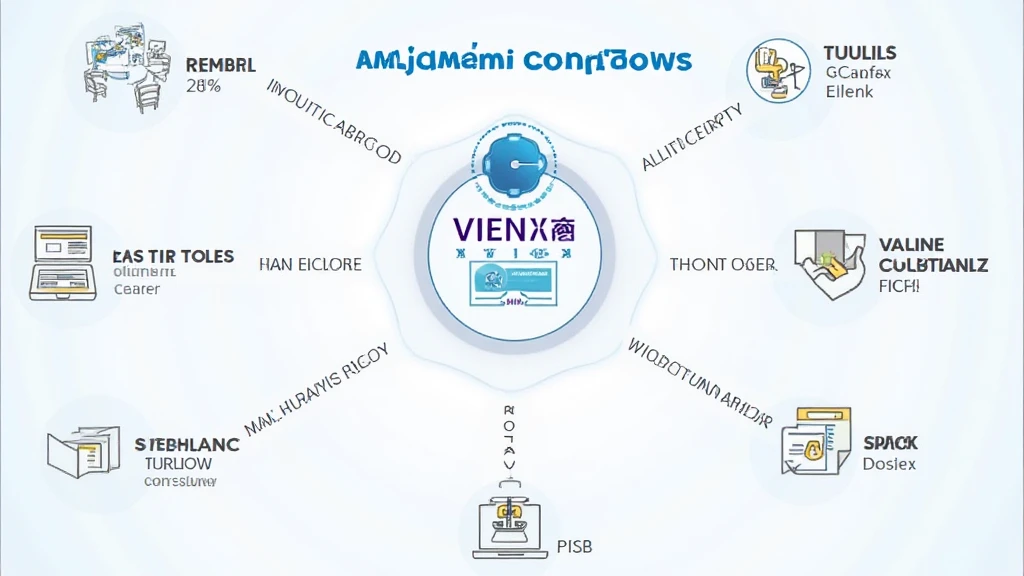Vietnam AML/KYC Workflows: Ensuring Security in Crypto Transactions
Vietnam AML/KYC Workflows: Ensuring Security in Crypto Transactions
With the rise of cryptocurrencies, security has become a prime focus for regulators and businesses alike, especially in Southeast Asia. Vietnam stands at the forefront of this movement, with its unique approach to Anti-Money Laundering (AML) and Know Your Customer (KYC) practices. In this article, we will explore Vietnam AML/KYC workflows and how they integrate with the growing cryptocurrency landscape. As of 2025, the cryptocurrency market in Vietnam is anticipated to expand significantly, and understanding these workflows is essential for any entity operating in this space.
The Importance of AML/KYC in Cryptocurrency
Just like a bank is obligated to verify the identity of its customers before approving transactions, cryptocurrency platforms must also implement stringent AML and KYC measures to prevent illegal activities. The importance of AML/KYC is highlighted by the staggering amount of over $4.1 billion lost to DeFi hacks in 2024. This underlines the necessity for robust security measures, especially for digital assets.
- Preventing Fraud: Proper AML/KYC processes help in mitigating the risks of fraud and money laundering.
- Building Trust: Establishing a secure environment fosters user trust, essential for the growth of the cryptocurrency ecosystem.
- Compliance with Regulations: In Vietnam, adherence to AML and KYC regulations is crucial for legal operation within the digital asset space.
Overview of Vietnam’s Regulatory Environment
Vietnam’s regulatory framework for AML and KYC is evolving rapidly, influenced by both domestic policies and international standards.

Current Regulations
The State Bank of Vietnam (SBV) is the leading authority overseeing AML/CFT (Counter Financing of Terrorism) regulations. In addition, the Ministry of Finance has laid out numerous guidelines aimed at crypto asset management. According to the latest reports, there is a growing demand for compliance, especially given the exponential user growth rate in Vietnam’s crypto market, projected at over 30% annually.
Key Players in the Ecosystem
Several stakeholders play crucial roles within the Vietnamese AML/KYC workflows:
- Financial Institutions: Banks and payment processors that verify customer identities.
- Crypto Exchanges: Platforms that facilitate trading and are expected to enforce KYC procedures.
- Regulatory Bodies: Entities such as the SBV that delineate compliance requirements.
Implementing Effective KYC Procedures
Implementing effective KYC procedures is essential for any crypto platform operating in Vietnam. Here’s a breakdown of what businesses need to consider:
Step 1: Customer Identification
Like a bank vault for digital assets, customer identification is the first line of defense. This can include:
- Collecting government-issued IDs
- Verification through facial recognition technologies
- Address verification through utility bills or bank statements
Step 2: Customer Due Diligence (CDD)
After identification, businesses must perform due diligence to assess the risks associated with customers. CDD procedures are typically tiered based on the risk level of the clients. For example:
- Standard Due Diligence: For typical customers, including routine monitoring of transactions.
- Enhanced Due Diligence: For high-risk customers, entailing deeper investigation and frequent monitoring.
Step 3: Ongoing Monitoring
Ongoing monitoring is akin to keeping the vault locked; it ensures that any suspicious activities are quickly detected. Continuous assessment of transactions and behaviors can help in mitigating risks significantly.
Integration of Blockchain Technology in KYC
Blockchain technology provides a unique solution for amending KYC workflows. Utilizing tiêu chuẩn an ninh blockchain (blockchain security standards) can enhance the efficiency of KYC processes in the following ways:
- Decentralized Data Storage: Reduces the risks associated with data breaches by decentralizing customer information.
- Smart Contracts: Automate verification processes, reducing the potential for human error.
- Immutable Records: Ensure that once data is recorded, it cannot be altered, safeguarding against fraud.
The Future of AML/KYC in Vietnam
As we look toward 2025, the transformation of AML/KYC workflows is inevitable, propelled by advancements in technology and regulatory changes. Experts predict that:
- Increased collaboration between governmental bodies and financial institutions will lead to a more robust compliance framework.
- AI and machine learning will become commonplace in transaction monitoring, offering enhanced analytical capabilities.
- Public awareness and education regarding AML/KYC will increase, further aiding compliance efforts.
Conclusion: Navigating Vietnam’s AML/KYC Landscape
By understanding Vietnam AML/KYC workflows and regulatory dynamics, businesses can thrive in one of Southeast Asia’s most promising markets. With the anticipated growth of digital assets, ensuring compliance not only protects users but also fuels the industry’s credibility. The innovations on the horizon pave the way for a secure crypto ecosystem that bridges the gap between traditional finance and blockchain technology.
As a non-financial advice recommendation, it’s crucial to consult with local regulators to stay abreast of the latest compliance requirements.
For more insights on cryptocurrency trends and practices, visit techcryptodigest.





